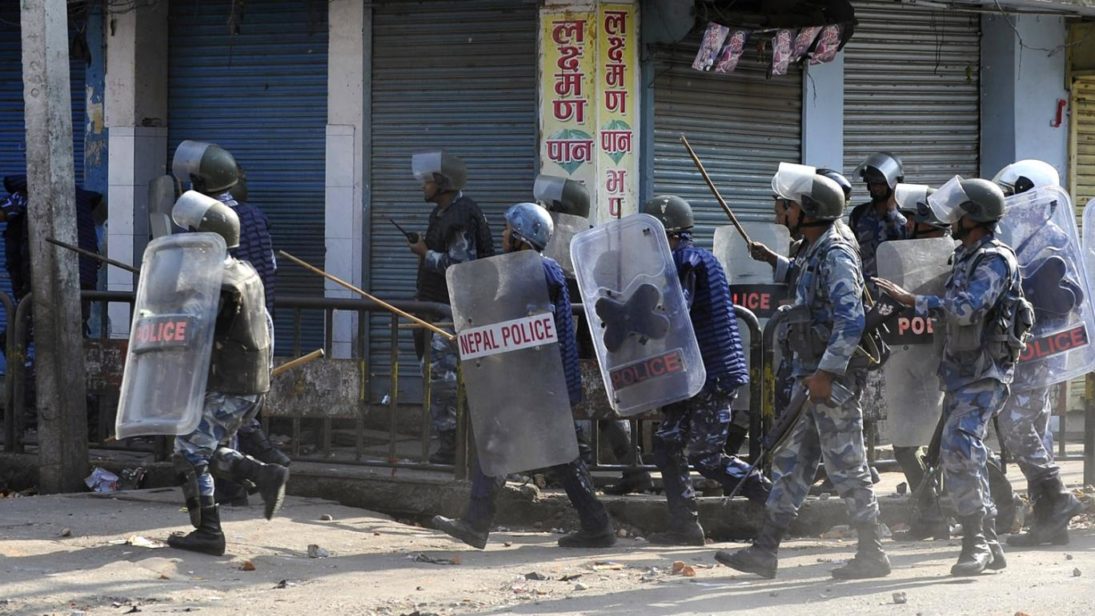
Since the Bharatiya Janata Party (BJP) has come to power, it has shown enormous progress on the foreign policy front. Prime Minister Narendra Modi has made roughly thirty foreign visits during his sixteen-month tenure. He recently visited the United States and met several CEOs and investors, including going to Silicon Valley to meet Facebook’s Mark Zuckerberg to promote his Digital India initiative. Apart from this, he has also initiated a uranium deal with Australia, has signed a Rs75 million credit line for Fiji and has promised to expand defense and security cooperation, and he has signed a deal with France for a supply of thirty-six Rafale jets in fly-away condition along with a railway protocol to develop a semi high-speed railway corridor. Additionally, he has attained a long-term agreement from Canada to supply uranium to India, has assigned a $1 billion credit line to an integral India’s Act East Policy member Mongolia, has implemented the Land Boundary Agreement with Bangladesh, and has received $75 billion in infrastructure investment from the United Arab Emirates. However, things are not falling into place the way they should. It is becoming a classic case of promising more in order to come to power – leading to rising expectations that are not only difficult to achieve, but also impossible to meet. The recent turmoil with Nepal is one such example that has affected the foreign policy of India.
Last year, Modi’s visit to Nepal was well received where he not only addressed the Constituent Assembly, but also took part in a prayer in Pashupatinath Temple. He was the first Indian prime minister in seventeen years to visit the country since Inder Kumar Gujral. India provided post-disaster operations as well as pledged $1 billion when several earthquakes hit Nepal in April this year. One may then wonder, what went wrong between India and Nepal? The disproportionate relation between the two countries is highlighted by the recent adoption of the Nepalese Constitution. India has always encouraged Nepal to adopt a new constitution. When the constitution was being adopted, India suggested some changes to make the document more inclusive. The Nepali people, considering it as a direct interference in Nepal’s internal affairs, ignored India’s suggestions; the majority of the elected members of the Nepali Constituent Assembly adopted the new constitution.
The kink, however, that remains is that the Nepalese Constitution has not been accepted by ethnic communities, the Madhesis and Tharu, which make up forty percent of the population. These two groups live in the Terai region, which shares an open border with the Indian states of Uttar Pradesh and Bihar. The main crux of the problem is that the Nepalese Constitution does not equally represent these two communities, which constitute almost half of Nepal’s population. They have demanded Hindi to be an official language in Nepal and have asked for proportional representation in the government. Minorities in the Terai region believe that demarcation of new state borders will lead to them being vulnerable to marginalization from the elite. One reason that can be predicted in response to India’s (BJP) support for the Madhesi and Tharu communities is to restrict the escalation of violence in the region that has already killed over forty people, which may disrupt elections that are to take place in Bihar in the coming month.
Recent Developments
Following the bitter relationship between the two countries, there appears to be an economic blockade. Around 4,310 trucks carrying fuel to Nepal are stranded at the border because of security concerns. However, recently 100 trucks were allowed to pass the Nepal border to ease the economic functioning of Nepal. However due to this blockade, the agreement signed in August between the Indian Oil-Corporation and the Nepal Oil Corporation to lay 41km of oil pipeline to enhance connectivity will be disrupted and delayed. Both the countries continue to blame each other for the blockade. India has outright rejected any involvement in the blockade. India’s Ministry of External Affairs spokesperson, Vikas Swarup, has clarified, “We can only take goods up to the border and beyond the border it is the responsibility of the Nepalese side to ensure that there is adequate safety and security for the trucks to enter that side.” Additionally, Nepal is facing a shortage of Indian currency for its local money market. This has further added to the deterioration of Nepal’s economy.
What can be done?
Considering Nepal is growing into a democracy after so long, the country should experience highs and lows autonomously. India’s support to Madhesis and Tharu communities has affected India’s relation with other Nepalese populations. Moreover, India’s policies toward Nepal are risky as Nepal is more difficult to manage given that the country shares its border with China. Although China has poor infrastructural connectivity with Nepal, their geographic proximity affects India. Additionally, India’s advice to resolve differences in Nepal “through dialogue in an atmosphere free from violence and intimidation” so as to enable “broad-based ownership and acceptance” has not quite worked in favor of India. India should restrain itself from providing any suggestions to Nepal and must consider the sovereignty of its neighbor. On the Nepal side, there is a need to address the issues of unrest within the Madhesis and Tharu communities as soon as possible to prevent further disruption and violence. Additionally, there is a need to make the Nepalese Constitution more legitimate, democratic, and inclusive. The recent developments taking place between India and Nepal have undoubtedly left a dent in India’s foreign policy.
***
Image: Prakash Mathema-AFP, Getty


